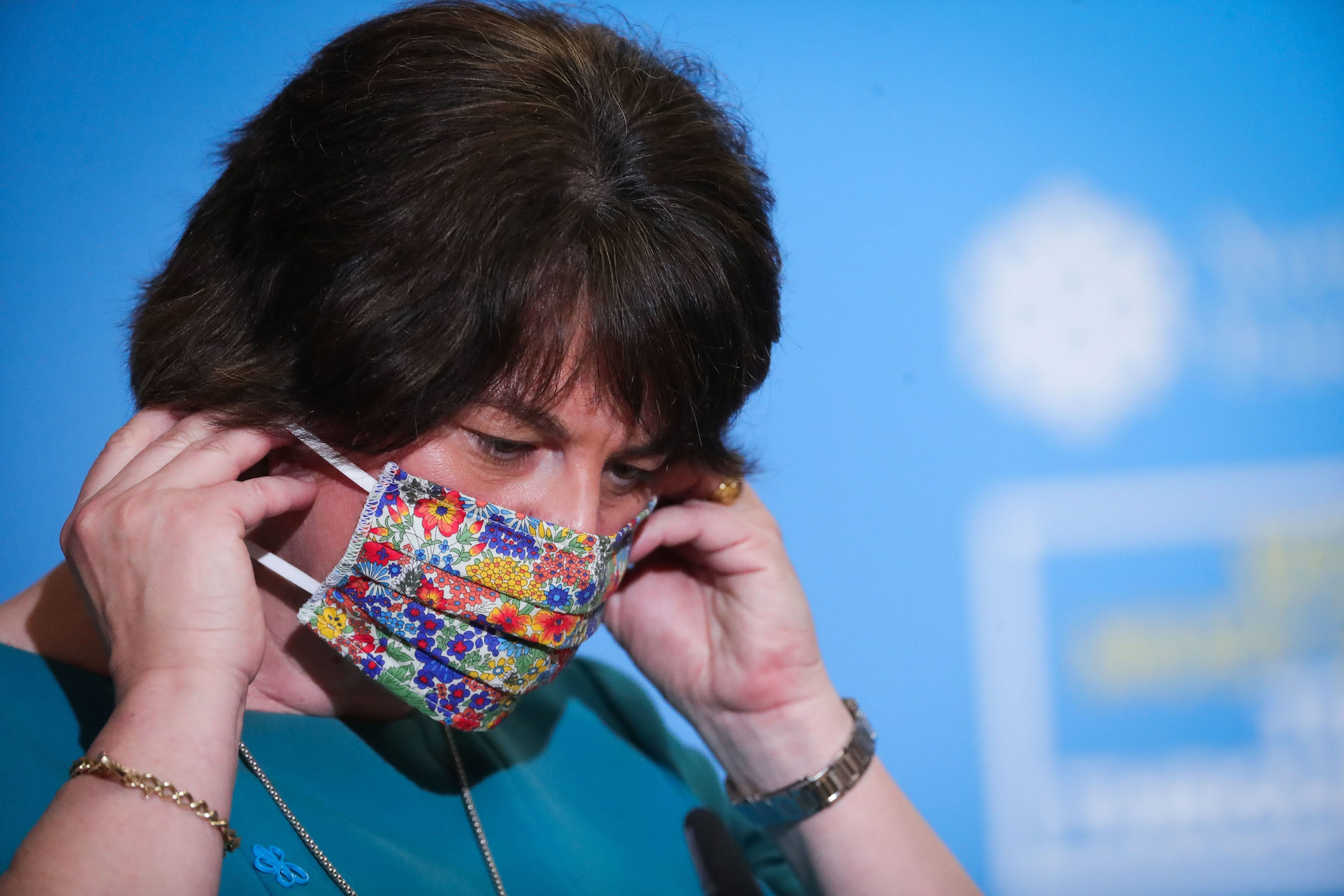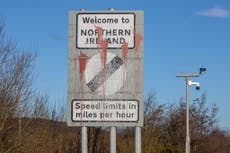The Independent's journalism is supported by our readers. When you purchase through links on our site, we may earn commission.
Defensive and oppositional – the DUP is completely out of touch with Nothern Ireland’s ‘peace generation’
When it comes to the ballot box, young people will know where to make their vote count. If the DUP wants it to count for them, they need to start engaging


Your support helps us to tell the story
From reproductive rights to climate change to Big Tech, The Independent is on the ground when the story is developing. Whether it's investigating the financials of Elon Musk's pro-Trump PAC or producing our latest documentary, 'The A Word', which shines a light on the American women fighting for reproductive rights, we know how important it is to parse out the facts from the messaging.
At such a critical moment in US history, we need reporters on the ground. Your donation allows us to keep sending journalists to speak to both sides of the story.
The Independent is trusted by Americans across the entire political spectrum. And unlike many other quality news outlets, we choose not to lock Americans out of our reporting and analysis with paywalls. We believe quality journalism should be available to everyone, paid for by those who can afford it.
Your support makes all the difference.In 2017, I became old enough to vote. This is significant for young people like me who are part of Northern Ireland’s “peace generation”. As the first generation to learn about, rather than live through, violence in Northern Ireland, we are determined to be part of the process of deciding our future.
Despite this power to vote, however, many young people still feel helpless, because our largest party, the Democratic Unionist Party (DUP), has alienated us in its handling of recent crises.
Like everyone in Northern Ireland, my biggest concern is maintaining the peace. But I recently noticed graffiti in a residential area near my home in North Belfast calling for the removal of the Irish border, a retaliation to the latest chain of threatening messages, which have been plastered on walls at ports, about the Northern Ireland protocol. I never expected hostile messages to reach my doorstep. It makes me anxious, and I know I’m not alone.
For my generation, these graffiti messages are extremely worrying, and the DUP have backed away from tackling this in a constructive way. Their condemnation of these threats offers little reassurance when they themselves are projecting aims to abandon the Northern Ireland protocol, the only means of ensuring no land border on the island.
The DUP have recently launched a five-point plan, including an e-petition, to pressurise the UK government to trigger Article 16, a clause which allows the UK or the EU to waive certain terms of the protocol. For the DUP, this is a call to scrap the protocol, with no alternative in place. For young people, the party is threatening the stability we have grown up with; a stability that the protocol, if approached with care and respect from all sides, can maintain.
Instead, the party has retreated back to the method a new generation of voters have seen them employ throughout the Brexit process: a defensive, oppositional stance.
Everyone in Northern Ireland knew that Brexit would mean change. What the DUP want is a return to the status quo, a norm they vetoed the moment they opted for the hardest possible Brexit deal, knowing this would hit Northern Ireland hardest, and rejected Theresa May’s deal, which would have avoided a separate arrangement for Northern Ireland.
What makes the party position harder to understand is that it seems they are rejecting constructive dialogue on all sides, both between the UK and EU’s bargaining teams, as well as with the Irish government. The EU’s Article 16 blunder has given the UK more leverage to call for an extension of grace periods and more time to adjust in Northern Ireland, but the DUP are still pushing for no protocol. For a generation which isn’t used to seeing instability play out, this is distressing.
Their aim to affect North-South co-operation over the protocol is no doubt linked to widening discussion around a border poll on the island, which would ask people in Northern Ireland to decide on whether they wish to remain in the UK or join a united Ireland.
In a recent poll by LucidTalk, 50.7 per cent agreed that a border poll should happen within the next five years. In a separate question, which assessed the potential outcome of such a poll, 47 per cent of people in the 18-44 age bracket would vote for Irish unity.
If the results show anything, it is that it is too early to predict if and when we will be posed with the question of Northern Ireland’s constitutional future. But there is a mandate in Northern Ireland for discussion. And it’s a discussion that young people want.
If the DUP continue to ignore us, they risk cementing themselves as a party closed off to conversation and progression, in whatever form that might take.
It’s not just over the protocol that the DUP have proved themselves to be out of touch with a new generation of young people. In recent years, young people in Northern Ireland have led the charge against social and systemic inequality, while the DUP’s socially conservative stance has continued to disproportionately affect marginalised groups, such as LGBTQ+ communities and ethnic minorities.
Most recently, DUP MP Gregory Campbell has come under fire, especially from young people, for a Facebook post, which criticised a Songs of Praise semi-final as “the BBC at its BLM worst”.
Despite Northern Ireland’s First Minister Arlene Foster’s insistence that her party is “totally committed” to racial equality, commitment requires action. This not only involves holding party members to account but engaging in constructive dialogue over issues, which these members have proved themselves to be uncomfortable with.
A statement condemning the post has over 3000 signatures. This includes members of Northern Ireland’s other parties, including the Green Party, the Social Democratic and Labour Party and Alliance, a party which, according to another poll by LucidTalk, is quickly catching up with the DUP.
Having campaigned for votes at 16, the Alliance party, which describes itself as non-sectarian, knows it can make inroads into a new generation of voters attracted to the stability of the middle ground and their commitment to speak out on issues which young people care about.
Elections to the Northern Ireland Assembly are just over a year away, and the DUP should focus on how the party can gain trust with the latest generation to enter the electorate. As the largest party and joint custodians of peace and stability in Northern Ireland, alongside Sinn Féin, the DUP must think about how their actions will be perceived by young people. This means actively listening to us and formulating party positions with us in mind.
Discussion and constructive dialogue, not abandonment and avoidance, are the way forward. If the DUP cannot see this, they are not in line with a generation of young people who can. When it comes to the ballot box, young people will know where to make their vote count. If the DUP wants it to count for them, they need to start engaging.




Join our commenting forum
Join thought-provoking conversations, follow other Independent readers and see their replies
Comments